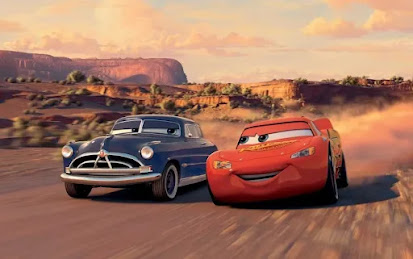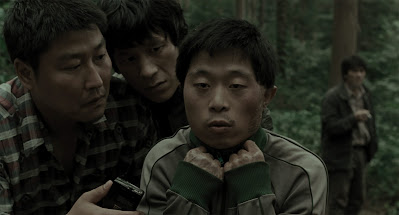February 10 Movies 10 Decades Reveal
With January almost over I wanted to announce next month's 10 Movies 10 Decades. While normally I'd like to come up with an array of options and run a poll to see what other folks are interested in, like I did with January, I felt a need that for Black History Month to at least attempt to look into Black Cinema, specifically films made by Black directors. This has been an area of film that I'm still exploring and I felt a deep dive would be good. Here are my ten entries for next month:
- Ma Rainey's Black Bottom (2020)
- Pariah (2011)
- When the Levee Breaks: A Requiem in Four Acts (2006)
- Daughters of the Dust (1991)
- Tongues Untied (1989)
- Shaft (1971)
- Symbiopsychotaxiplasm: Take One (1968)
- The Blood of Jesus (1941)
- Murder in Harlem (1935)
- Within Our Gates (1920)
When I started the first thing I looked into was how possible this experiment was - would I even be able to find 10 movies from 10 different decades, each with a Black director. This curiosity was less an indictment on Black creators but on a racist Hollywood. Enter Oscar Micheaux. With several dozen films directed by him, I knew I could at least move forward with the Black directed 10 Movies 10 Decades.
I try not to have the same director multiple times in this project, but in the early days of Hollywood not many Black directed films survived, so I went with Within Our Gates and Murder in Harlem. It also helps that every article on influential Black cinema included Within Our Gates. The 1940s were also thin on options, but The Blood of Jesus, directed by Spencer Williams, was also indicated as an influential flick.
The 1950s were conspicuously light on Black cinema so I skipped that, knowing there would be more options in future decades, and looked into the 1960s. William Greave's Symbiopsychotaxiplasm: Take One is universally celebrated, so it was an easy pick. Especially after delving into meta films, like both 8 1/2 and All That Jazz last month, I'm looking forward to it. Like the 1960s, the 70s had more than a few options to pick from, but I felt that Gordon Park's Shaft was an egregious hole in the films I've seen, so on it went. A fun kick ass flick thrown in felt more than welcome.
Moving forward into the 1980s and beyond, I wanted to ensure my search would include intersectional representation. As much as I wanted to make sure I represented Black culture and cinema, I wanted to make sure my picks wouldn't just be a line up of straight Black male directors. Which takes us to the documentary on Black gay men in the 1980s, Tongues Untied by Marlon Riggs. This is followed up by Daughters of the Dust by Julie Dash. When I looked up Black women directors this was consistently one of the top spot in lists so I'm really looking forward to it.
That takes us to the 2000s. Spike Lee's When the Levee Breaks: A Requiem in Four Acts was also one of those films that I was eyeballing before this list was made and quickly got a spot. I volunteered in New Orleans in the clean up shortly after Katrina however not once did my experience ever venture far from that of my white experience. I mean to change that. Into the 20102, Pariah by Dee Rees was actually suggested by Alicia, a member of the Laserdisc Party community that I reached out to. Alicia often stands up as an advocate for Black cinema when the community talks movies so I knew I wanted their thoughts on the overall list.
Originally, The Woman King, directed by Gina Prince-Blythewood, was going to be my 2020s entry. Upon a suggestion by Alicia, I tossed it. The Woman King had white writers and Alicia challenged me to look for something with more Black creative input. I opted for Ma Rainey's Black Bottom, directed by George C. Wolfe, written by Ruben Santiago-Hudson, and based off the 1982 play by August Wilson.
Normally for 10m10d I like to run polls online to get folks to vote what order I watch these movies. For this month, I'd like to do something specific and watch the films in chronological order. I hope it feels like a stroll through Black cinema over a century. Starting with the 1920 film, Within Our Gates, I'd walk through the films and end up with Ma Rainey's Black Bottom, a film that takes place also in the 1920s. Hopefully it'll be a nice pair of bookends for this journey. I look forward to reporting in at the end of the month.
Until then, I'll catch you next week where I opine a defense of the 1993 Super Mario Bros because why not, right?




Comments
Post a Comment